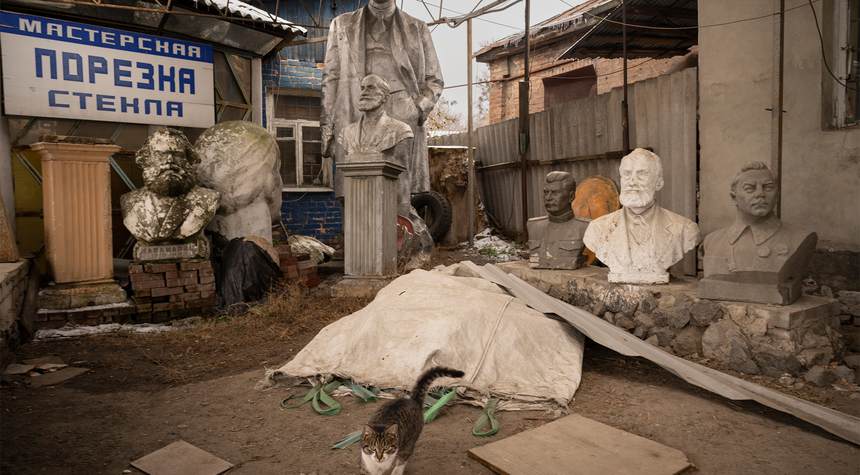
The Twitterverse is aflame over recent comments by Ukrainian President Volodymyr Zelensky’s take on why American aid is vital to not only supporting his country in the Russia-Ukraine War but also thwarting Russian President Vladimir Putin’s plans for further conquest should Ukraine fall.
Putting it as mildly as possible, any mention of American military personnel being sent en masse to Europe for the third time in 110 or so years immediately raises hackles already on full alert over the hundreds of billions the United States has poured into Ukraine’s defensive effort since Russia invaded. We are a war-weary land in a war-weary world. If those with Ukrainian flags in their Twitter names want to send their sons and daughters off to fight, no doubt there exists a Lincoln Battalion contemporary either already exists or can be quickly formed. There is also no doubt no one at the Lincoln Project will back their tough talk by sending themselves or their offspring, but I digress.
Bonchie has an excellent take on Zelensky’s comments being oversharing, foreign policy style. Given that the American money and military equipment spigot is in zero danger of being turned off anytime soon, why Zelensky would hammer away at a point that if the aid does stop and Ukraine does fall, Putin will not stop there and would cheerfully attempt reenacting September 1939 on NATO member Poland is a tad curious. That said, let’s pull back a bit and examine the matter.
Zelensky is not talking about American troops in Ukraine, although one strongly suspects he wouldn’t mind the United States changing its support level from proxy enabler to full-fledged action. He is referring to the belief that should Ukraine fall, Putin will target Poland based on his suspicion that NATO, which, like it or not, is an American-led entity designed to thwart any possible Russian desire for expansion, has an actual purpose of eventually overthrowing Russia’s present government, replacing it with a more Western-friendly entity willing to allow full exploitation of Russia’s natural resources, especially oil and natural gas. Comments in February 2023 by former Russian President and current Deputy Chairman of Russia’s Security Council Dmitry Medvedev regarding Russia’s willingness to take the war to Poland’s border should not be disregarded as braggadocio or saber-rattling.
While hating on Zelensky has become something of a cottage industry in conservative circles, a brief reminder of some oft-ignored facts. Like him or not, he didn’t start the war. Putin did, fueled by both proactively defending Russia against the perceived NATO threat and religious fervor. Zelensky has seen his country’s people killed and wounded, his country’s cities occupied and destroyed. That is not a conducive atmosphere for measured diplomatic discourse. Is Zelensky flawed? Certainly. A 21st century Winston Churchill he is most likely not. But he is where he is, and it is the hand our world holds in this ultimate stakes poker game.
Nationalism and isolationism are not necessarily mutual. One can believe in putting American interests first, and we cannot serve as the world’s police force. However, neither can we adopt a 1930s-style Fortress America mentality, believing the best way to deal with international matters is, at all costs, not dealing with them. Evil and the corresponding thirst for conquest still exist in this world. Indeed, the current policy of sending Ukraine everything imaginable without effort to keep an invoice of what is going where cannot continue. That said, pursuing peace — which should be the goal in all this — can and often does require bringing it about by implementing superior firepower. While Zelensky’s comments are grating, we should not dismiss them out of hand.
